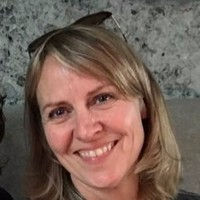How the Vikings Changed the English Language
- Hilde Huus
- Dec 31, 2016
- 3 min read
Updated: Nov 7, 2024
Dr. Ian MacKay had so much to tell us about how the Vikings changed the English language, at our Distinguished Speaker Series evening on November 16, it’s hard to know where to begin. I am always curious about the origins of words, so it was great fun to learn that the word “muggy” - a word I use pretty often in our humid Ottawa summers, comes from the Old Norse word “mugge”, which actually meant “drizzle”. And who would have thought that the very scientific-sounding “litmus” comes from the Old Norse word for a kind of moss that was used for dyeing? As a Norwegian speaker, I was not at all surprised to learn that the word “egg” comes from the Old Norse word “egg.” (I have always found the Norwegian word for fraternal twins - “toeggede” - literally “two-egged” - very practical but quite funny).
Dr. MacKay told us that there are about 400 words in the vast vocabulary of the English language that are definitely borrowed from Old Norse, and those words are common, everyday words that we use all the time. Words like dirty, ugly, husband, shirt and skirt (both borrowed from a single Old Norse word), die, yard and garden (again, both borrowed from one Old Norse word). Old Norse also had a major impact on English grammar, for example by replacing their existing verb forms of “to be”, as well as some of their pronouns.
In giving us an overview of the arrival of the Norse to the British Isles, he helped us understand how and why Old Norse had such an effect on English. By the time the Viking Age Norse settled in England in the 8th and 9th centuries AD, there was already an established population of Germanic peoples who had migrated from Jutland, Angeln (also known as Anglia), and Saxony by the 5th century AD. They spoke Old English, which was related to and similar to Old Norse. In fact, there were huge overlaps in their vocabularies.
After the Viking Age Norse settled in England, contact with the Scandinavian countries was not cut off. Travel back and forth between the British Isles and Scandinavia continued. Dr. MacKay explained that it is absolutely normal behaviour when two linguistic groups live together to engage in what he called “code-switching”. Those of us who grew up in immigrant families will recognize this scenario. Half way through a conversation in their maternal language, the speaker will suddenly throw in a word or two, or perhaps a sentence or two, in their second language. Sometimes a conversation will progress for a few minutes in one language, switch to the second language for a while, and then switch back to the first language. If you did not grow up in an immigrant household, you will no doubt have heard similar conversations among bilingual francophones who often mix in some English while they are speaking French, especially if there is an anglophone present. This is apparently completely normal human behaviour that has existed as long as there have been speakers of more than one language conversing together.
When languages are in such close daily contact, it is natural to borrow words from each other, but the meanings of those words usually shifts a little. Sometimes the meaning of a borrowed word becomes more narrow than in its original language. Dr. MacKay used the example of the word “fleck”, which meant “spot” in Old Norse, but in English has come to mean a particular kind of spot - one that is very small and made up of colour or light. Or a word may take on a wider, more general meaning when it is borrowed. So the Old Norse word “drit” meant specifically “sh_ _” but its meaning has broadened as it evolved into the more general English word “dirt.”
The audience was very appreciative and had lots of questions for Dr. MacKay. It is so intriguing to learn about how history makes its mark down through the centuries, and how we humans go about changing and evolving language without meaning to or even being aware of it. Dr. MacKay mentioned that there is a whole other story to be told about the influence of the Norman French on the English language after the invasion of 1066, and judging by the audience reaction to his talk, I suspect we will be inviting him back to tell us more.




Comments